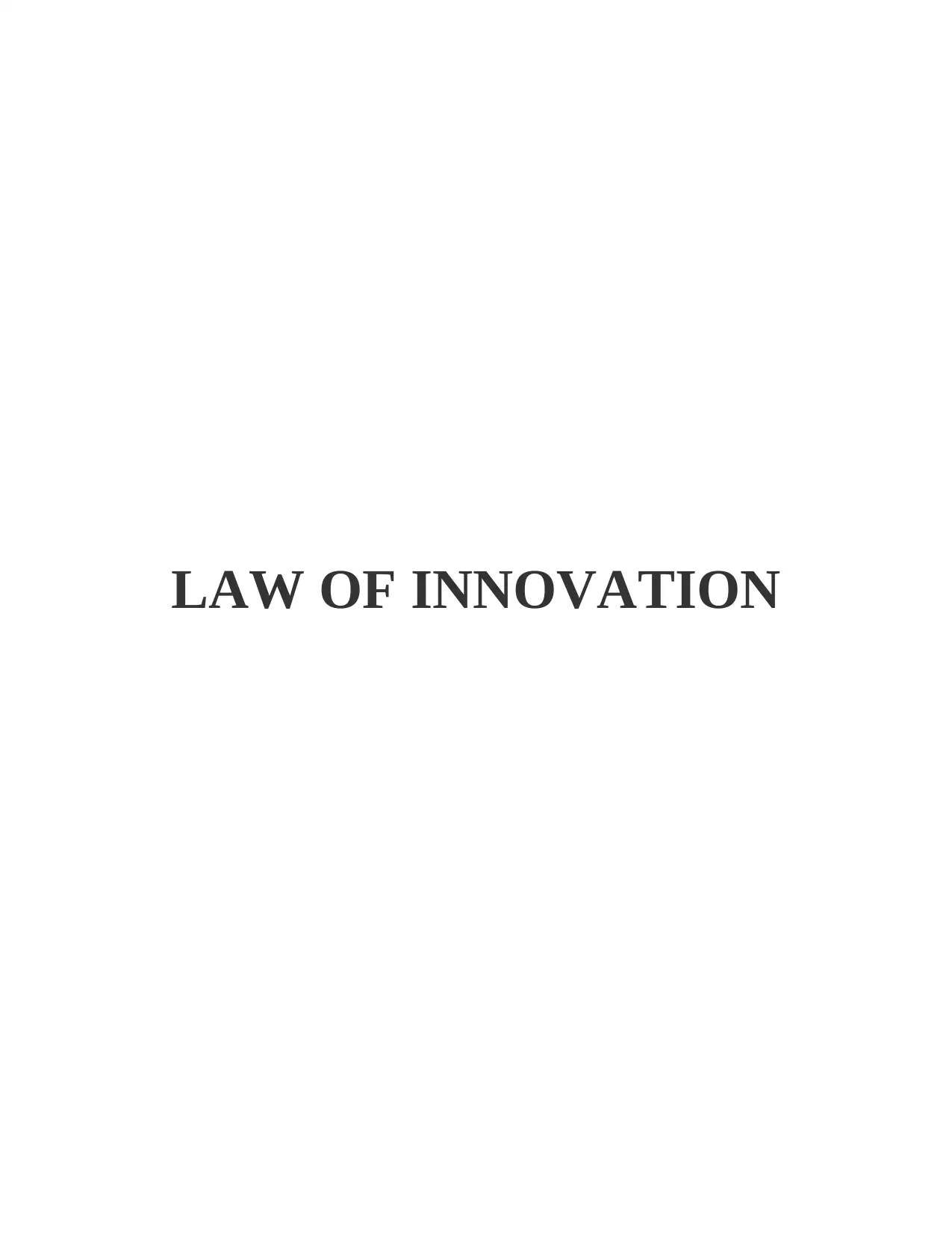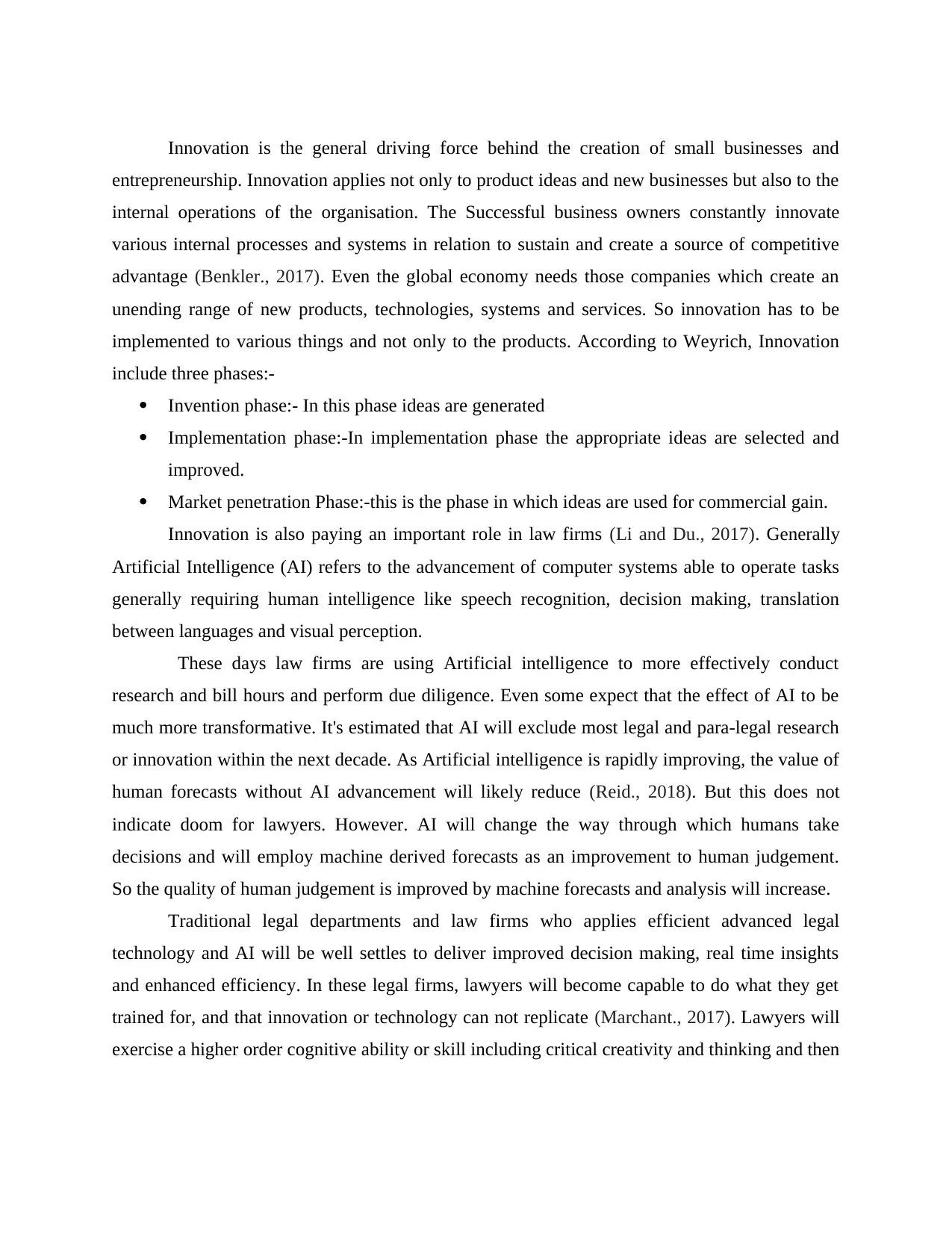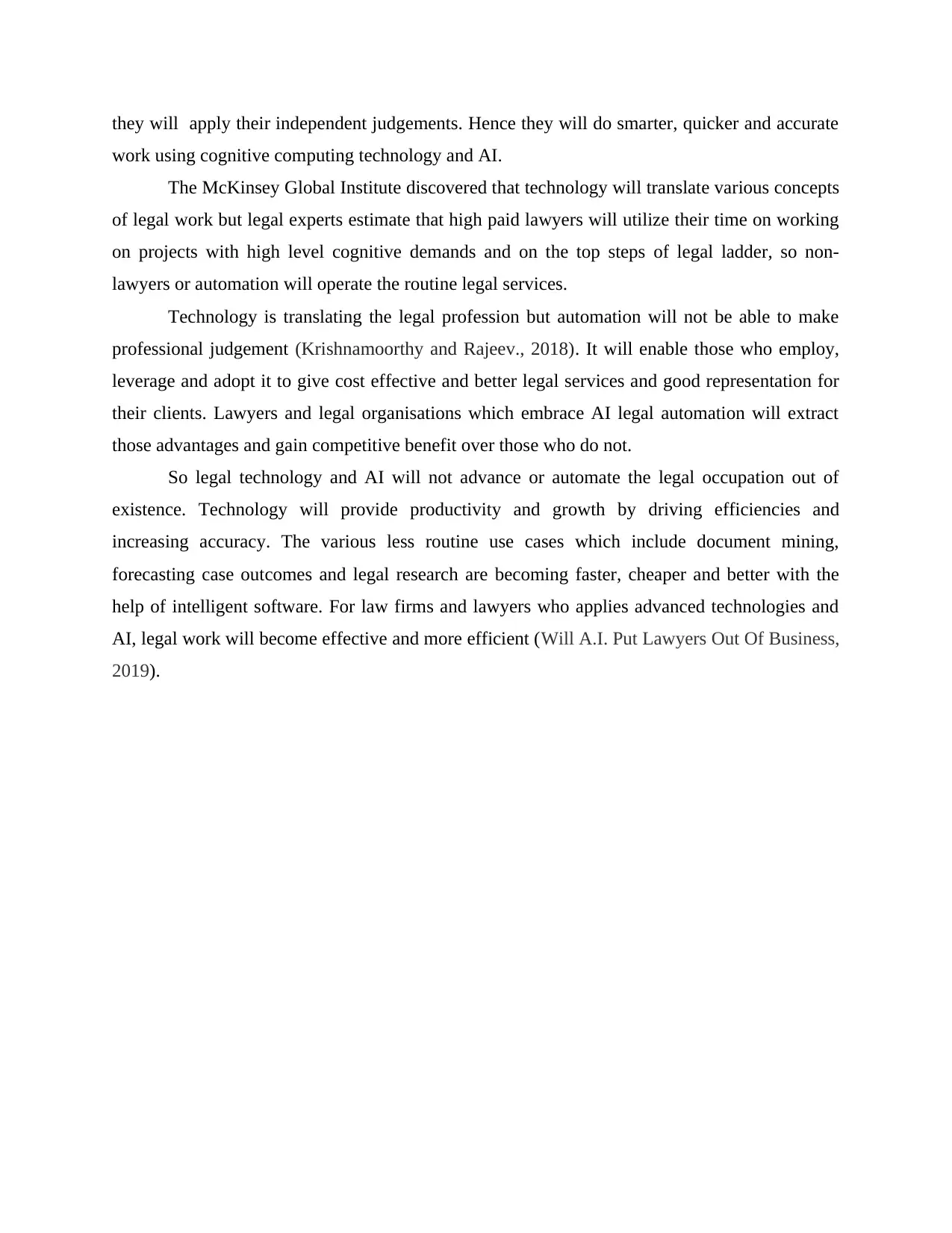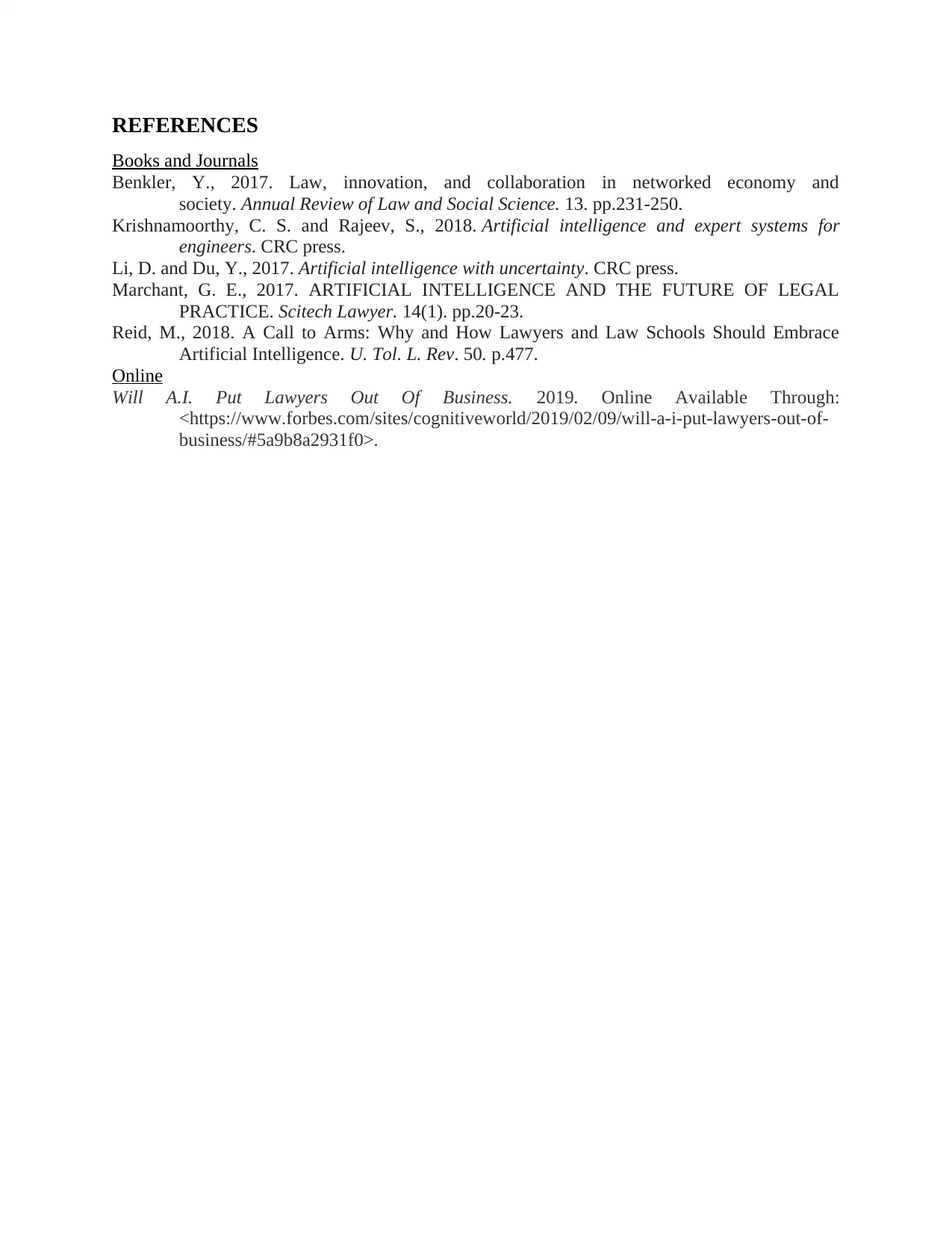The Law of Innovation: Artificial Intelligence and the Legal Sector
VerifiedAdded on 2021/02/19
|4
|817
|121
Essay
AI Summary
This essay examines the law of innovation, emphasizing its importance in driving business growth, particularly within the legal sector. It highlights how innovation, encompassing new products, processes, and services, is crucial for maintaining a competitive edge. The essay delves into the impact of Artificial Intelligence (AI) on law firms, detailing its use in research, billing, and due diligence, and forecasting its transformative potential. It discusses the phases of innovation: invention, implementation, and market penetration, and analyzes how AI is reshaping the roles of lawyers, suggesting a shift towards higher-order cognitive skills and improved decision-making through AI-assisted analysis. The document references several sources to support its arguments, including books and journals, and underscores the need for legal professionals to embrace AI to enhance efficiency and provide better services. The essay concludes by suggesting that while AI will transform the legal field, it will not eliminate the need for human expertise, but rather augment it.
1 out of 4











![[object Object]](/_next/static/media/star-bottom.7253800d.svg)